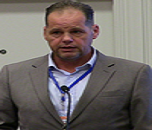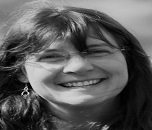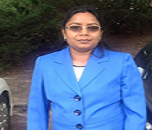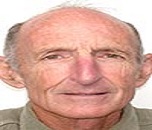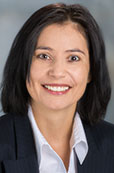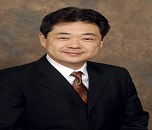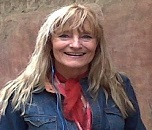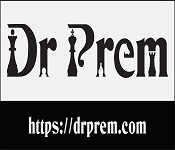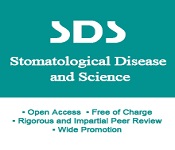Pathology week 2023
About Conference
We are pleased to announce the 7th international conference on Digital Pathology, organized by EuroScicon, taking place on December 11-12, 2023 in Rome, Italy.
The PathologyWeek 2023 brings together pathologists, physicians, researchers, professors, assistant professors, laboratory staff, scientists, and pathology & cancer epidemiology lecturers from both industry and academia to discuss the advancements and challenges in the broad sector of pathology, including but not limited to molecular pathology, gynecological pathology, hematopathology, cytopathology, immunopathology, histopathology, pathology imaging, clinical pathology, breast pathology.
There will be plenary sessions, industrial presentations, panel discussions, Q&A rounds, oral presentations, workshops/symposia, exhibitions, Young Researcher Forums (YRF), and pathologic poster presentations during this congress.
Sessions and Tracks
Session/Tracks
Track 01: Pathology:
Pathology is a crucial subject of contemporary medical diagnosis and scientific investigation. Its main focus is on the study of how diseases come to be, whether they are brought on by pathogens or non-infectious physiological issues. Pathos, which means "suffering," and -logy, which means "study of," is the roots of the word pathology. This broad and deep scientific discipline aims to understand how tissues and cells are damaged, how the body reacts to the damage, and how the body repairs itself. Cellular reactions to injury, necrosis, inflammation, wound healing, and neoplastic are all subjects of investigation.
Track 02: Comparative Pathology:
Comparative pathology is a field of pathology that examines the pathology of disorders in living organisms, particularly those that are comparable to human pathology. It is a crucial component of veterinary and animal care. These investigations look at both human and animal fatalities. Just as the real-life frames of historical events exclusively dealt with man and the higher animals, the drug has recently rejected all of the frenzied miracles that occur in the lower animals. However, at that time, studying these animals is beneficial because their life conditions are more difficult than those of humans and vertebrates, not because they are more difficult.
Track 03: Surgical Pathology:
The majority of physical pathologists find surgical pathology to be the most difficult and dismal aspect of their training. Careful pathology encompasses detailed examination of cautious points of reference as well as biopsies carried out by experts and non-experts alike, including general internists, medical subspecialists, dermatologists, and interventional radiologists. Whether or not tissue is unmistakably retrieved from a patient, careful pathology presentation includes a comprehensive assessment of contamination. This is frequently done by combining usually self-evident and minute tissue assessment, and may also include assessments of the tissue's atomic characteristics by immunohistochemistry or other examination procedures.
Track 04: Clinical Pathology:
Clinical pathology includes the laboratory examination of tissues, blood, and other naturally occurring liquids and parts in order to diagnose illnesses. The microscopic analysis of certain cells is also a part of it. Usually, a variety of examples are given, such as blood, feces, animal waste, manure, and other biological fluids. The theory and specific lab discoveries relating to the assurance and neutralizing action of disease were given particular emphasis by the pathology specialty. This strategy necessitates collaboration between clinical pathologists and clinical scientists like natural scientists, clinical microbiologists, restorative technologists, repair centers, and implications specialists in order to ensure the accuracy and best use of lab tests.
Track 05: Experimental Pathology:
The scientific study of perishing systems employing microscopic or nuclear examination of organs, tissues, cells, or body fluids from ill living creatures is known as experimental pathology, also referred to as insightful pathology. Undoubtedly, as well as in cutting-edge contemporary settings, it is directly related to the pathology of restoration.
Track 06: Breast Pathology:
Breast pathology is responsible for analyzing neurotic illnesses that are associated to the breast. The study includes detailed discussions of both mastitis, which is commonly associated with lactation, and fat corruption, which is frequently related to injury or earlier medical treatment. Most cases of breast cancer are carcinomas, which are formed from epithelial cells. To choose the appropriate course of treatment, it is crucial to precisely recognize each of the several forms of breast tumors.
Track 07: Renal Pathology:
Renal pathology is the area of anatomic pathology that focuses on the location of the kidneys. In order to evaluate the renal system, renal pathologists work closely with nephrologists and other subject-matter experts. They amass scientific proof supporting percutaneous kidney biopsy. The renal pathologist considers the results of light and electron microscopy to acquire assurance. Renal disease may have an impact on the glomerulus, tubules, and vasculature.
Track 08: Psychopathology:
The study of psychological instability or mental difficulties, as well as the identification of behaviors and interactions that may be suggestive of dysfunctional behavior or mental incapacity, are the main topics covered by the word "psychopathology." It entails a logical investigation of mental problems, making an effort to comprehend their genetic, typical, mental, and social causes, as well as practical collection methods (nosology), a course over all phases of development, warning signs, and therapies. In psychopathology, which tries to demonstrate the effects and circumstances of psychological instability, specialists are particularly interested. Patients with mental illnesses are occasionally treated by specialists or physicians who have a realistic impact on energetic prospering as well as analyze and treat patients through arrangements or psychotherapy.
Track 09: Cancer Cytopathology:
The study of cytopathology regulates the cellular manifestation of disease. The terms "cyto" and "pathology" both imply an infection. The tests are often done on cells in liquid desires, scrapings, or brushings to evaluate individual cells or small groups of cells to see if they are normal or show signs of illness. Cytopathology is crucial in the diagnosis of numerous illnesses. a malignant occurrence Histology places more attention on whole tissues, whereas cytopathology concentrates on the analysis of free cells or tissue pieces.
Track 10: Anatomical & Forensic Pathology:
Anatomic pathology is a clinical speciality that handles illness diagnosis based on evaluation of naturally visible, minute, biochemical, immunologic, and subatomic organs and tissues. It relates to handling, assessing, and locating careful examples. Scientific pathologists are in charge of determining the manner (manslaughter, self-destruction, coincidental, or obscure) and cause of death (a conclusive and quick explanations behind the ending of life), whereas criminological pathologists concentrate on determining the cause of death by examining a body.Track 11: Cytopathology:
Cytopathology is used to aid in the diagnosis of cancer as well as the investigation of some infectious diseases and other troubling disorders. Cancer Instead of focusing on complete tissues like histopathology does, cytopathology does testing on free cells or tissue fragments. Because the specimens can be covered by a glass microscope slide for subsequent recoloring and minute scrutiny, cytopathology tests are frequently referred to as "smear tests." In any event, there are a number of procedures to determine the results of cytology testing, including cytocentrifugation. Tumor detection may also be accomplished using several smear test types. It is referred to as a cytological smear in this sense.
Track 12: Pathogenesis:
The term "pathogenesis" refers to the process by which a disease begins and progresses. The harmony between the host and the virus determines it. The mechanics of an infectious disease's development, progression, and persistence or resolution are described by the term "pathogenesis." It is challenging to design, execute, and find strategies to avoid infection as well as to enhance patient outcomes following therapy without first having a thorough understanding of the etiology of an infectious disease at the cellular and molecular levels
Track 13: Forensic Pathology:
Forensic pathology is the branch of pathology that deals with investigating fatalities when there may be medical or legal repercussions. Autopsies are typically carried out by forensic pathologists. Evaluation of the evidence from the crime scene, including witness testimony, is assisted by forensic medicine. The forensic pathologists are able to find proof of the disease or injury by doing an autopsy.
Market Analysis
The clinical field of pathology provides patients and practitioners with information about symptoms. It affects almost every aspect of patient care, from identifying cancerous development to managing ongoing disorders through precise lab testing. We are hosting the 7th International Conference on Digital Pathology Congress in Rome, Italy from December 11–12, 2023, with the participation of professional researchers and scientists engaged in the promotion of high-quality education & research in all aspects.
The size of the global digital pathology market, estimated at USD 926.9 million in 2021, is anticipated to increase at a compound annual growth rate (CAGR) of 7.5% from 2022 to 2030. The market has been primarily driven by an increased emphasis on enhancing workflow effectiveness and a demand for quicker diagnostic tools for chronic diseases like cancer. The clinical need to adopt digital pathology is expected to increase due to the increased frequency of chronic illnesses. This will help to improve the patient diagnostic imaging measures already in place and lower the high cost of conventional diagnostics. The demand for technologically sophisticated diagnostic techniques is also anticipated to increase due to the growing elderly population, which is sensitive to chronic illnesses.
Marketing and Promotion: Review the event's marketing and promotional strategies, including online campaigns, social media presence, email marketing, and collaborations with industry partners. Evaluate the effectiveness of these efforts in reaching the target audience and generating interest.
Partnerships and Sponsors: Investigate the event's partnerships and sponsors, as they can impact its success and financial viability. Strong collaborations with relevant industry players can enhance the event's credibility and attract more participants.



